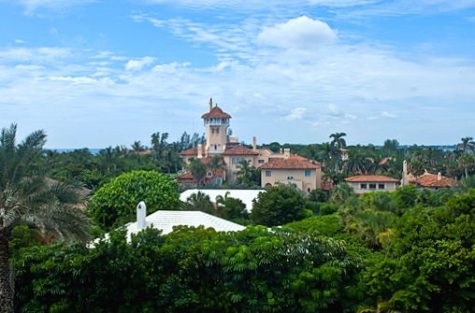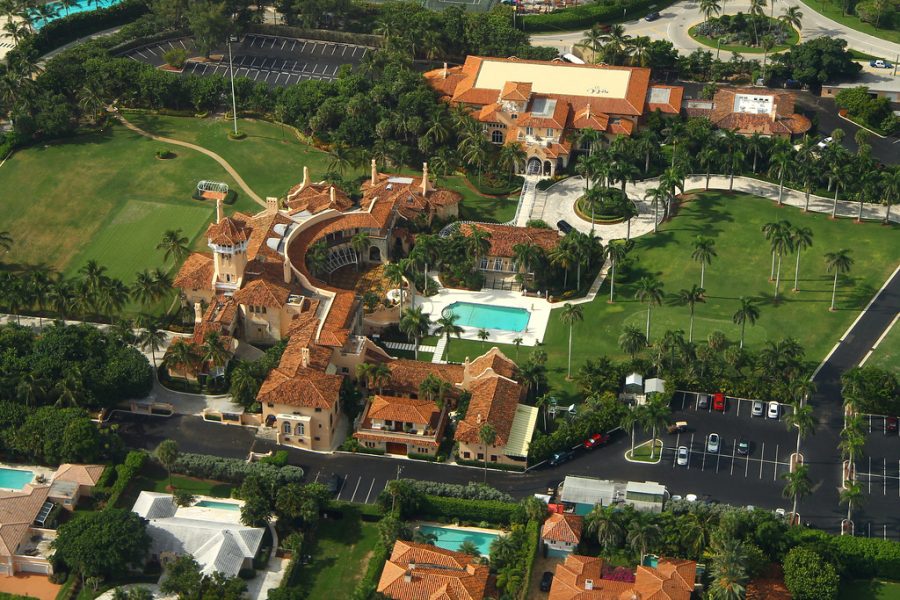Trump Mar-a-Lago: Everything You Need to Know
via Flickr, https://creativecommons.org/licenses/by-nc-sa/2.0/
October 13, 2022
On August 8th, the FBI raided Trump’s Florida residence and private club, Mar-a-Lago. During this investigation, agents took 18 documents marked as top secret, 54 marked as secret, 31 marked as confidential, and 11,179 government documents without classification markings. Due to the unprecedented nature of this scandal, Americans nationwide were mostly left in the dark as information continued to leak out into the public domain. So what really happened at Mar-a-Lago, and why is this investigation so prevalent? We interviewed Castaic’s very own Mr. Welch to gain insight on this case.

The first inquiry into this situation started with the discovery of missing confidential, top secret, and secret documents in the National Archives. “Ultimately, they discovered a discrepancy in the files in the aftermath of Trump’s presidency.” Mr. Welch told us. “Some of the files in question that were not able to be located were of a very sensitive nature, particularly a classified, top secret nature.”
The FBI had significant reason to suspect that Former President Donald J. Trump was in possession of these documents, and even more reason to assume that they could be found at his Florida home and club, Mar-a-Lago. They obtained a search warrant, and began the investigation in the home. Hundreds of documents were found, including a significant number of both the mundane and the sensitive type. “There were sensitive files that weren’t stored properly,” Mr. Welch went on to say. “It’s information that is very sensitive that we don’t necessarily want anyone knowing, let alone enemies of the United States [knowing], which is the case in a few of [the missing documents].”
Trump went on to claim executive privilege, which is the power of the President and other officials in the executive branch to withhold certain forms of confidential communication from the courts and the legislative branch. Executive privilege would allow Trump to claim personal possession, or custody, over the documents. However, as Mr. Welch explained, some of the documents that were uncovered were unable to be claimed under executive privilege, therefore making Trump unable to claim custody over them.
Legally, Trump’s actions exist in a gray area. Mr. Welch poses the question: “were these documents properly declassified, and if so, did he have the right to declassify all the documents?” The short answer to the former would be no. Trump did not go through the legal processes required to declassify it properly. Regardless of his claims that there doesn’t have to be a process, Executive Order No. 13526 says otherwise. This order prescribes a uniform system for classifying, safeguarding, and declassifying national security information. Trump has not gone through with this process, and by technicality, none of these documents that were in his possession were properly declassified.
Despite this, the main problem is still how these documents were kept or stored, and the potential that some documents may even be missing. These documents contained highly sensitive information, and Mr. Welch went on to elaborate that these documents concerned information with spies, informants, and other clandestine services. “There was a document, or documents, found about the nuclear capabilities of a country that is not the United States.” While it is not confirmed whether this information is on an enemy or an ally, it is detrimental to the United States, as it risks relationships with international parties.
Moving forward with this case, America’s political divide has proven to make the Justice department’s job of enforcing the law from an apolitical stance difficult. There is a widespread belief that this investigation is politically motivated and is a stunt to deter Former President Trump from running again in the 2024 presidential election. However, until this investigation concludes, no one can say for certain the extent of his crimes, if any. The issue is currently being evaluated in the Supreme Court.




